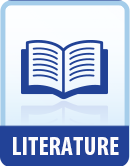|
This section contains 291 words (approx. 1 page at 400 words per page) |

|
Renaissance Literature Summary & Study Guide Description
Renaissance Literature Summary & Study Guide includes comprehensive information and analysis to help you understand the book. This study guide contains the following sections:
This detailed literature summary also contains Bibliography on Renaissance Literature by .
It could be argued that no other literary period in history is as richor paradoxicalas the Renaissance. Many historians place the Renaissance from the mid-fifteenth until the early seventeenth century. There are, however, a few writers from other time periods whom historians and critics commonly associate with the Renaissance. The European Renaissance produced some of history's greatest writers and works of literature, yet most historians and critics have not reached a consensus as to when it actually took place. In addition, the very ideas that began the Renaissance eventually led to other movements that signaled its demise. So what is the Renaissance? Contemporary "Renaissance" fairs and many movies set in "Renaissance" times are often set in England. In reality, however, the Renaissance started in Italy, then spread slowly to other European countries, most notably France, Spain, and finally, England.
At its most pure form, the Renaissance (from the French word for "revival") refers to the widespread renewal of interest in classical Greek and Roman learning and culture that took place between the Middle Ages and the modern period. With the advent of the printing press in 1450, the development of vernacular languages, and the weakening influence of the Catholic Church on daily life, among other historic events, Renaissance writers and scholars received new avenues for expressing their views. The explosion of literary works that followed live on today as some of the most celebrated in literary history. Early writers like Desiderius Erasmus and Thomas More staged direct attacks on the Church and society with works such as Erasmus's The Praise of Folly and More's Utopia. These writers helped open doors for later writers, including William Shakespeare, who is considered the greatest writer of all time by some critics.
Read more from the Study Guide
|
This section contains 291 words (approx. 1 page at 400 words per page) |

|



